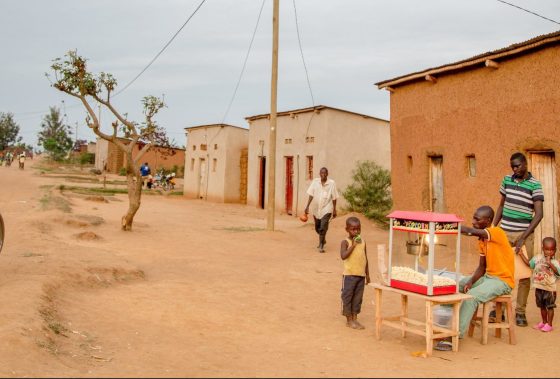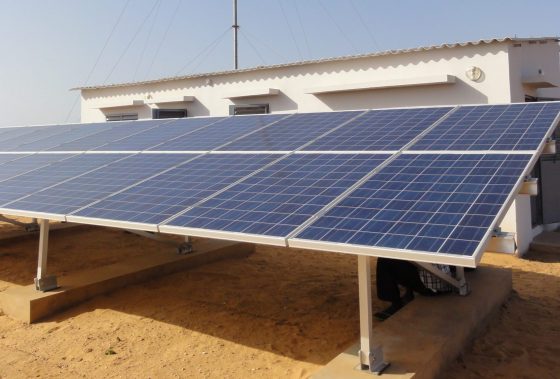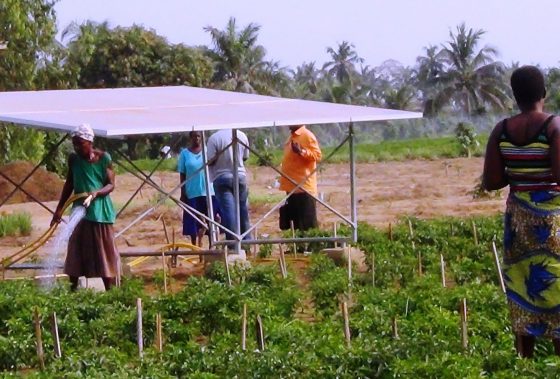
Improved livelihoods & nutrition for farming communities through solar energy
Supporting the Productive Use of Energy (PUE) in agricultural value chains to increase productivity and value-addition can be one of the most relevant means to improve smallholder farmers livelihoods and increase their resilience to climate change while contributing to GHG emissions reduction. SEFFA, which ran from 2021 to 2024 in Ethiopia, Kenya, and Uganda, increased access and adoption of renewable and energy-efficient technologies for 5,375 smallholder farmers. By combining technology, finance, training, and market access, SEFFA supported farmers to boost productivity, reduce post-harvest losses, increase incomes, and contribute to climate protection.
Technologies used in this project
- Stand-alone systems
Country data
- Countries Ethiopia, Kenya, Uganda
- Sectors Dairy and horticulture value chains
- Total budget €8 million
-
Co-financing partner
IKEA Foundation
- Implementing partners GIZ, SNV, and RVO
- Duration 01/2021 – 12/2024
Why Energy Matters
Smallholder Farmers’ Reality
Smallholder farmers in Sub-Saharan Africa earn, on average, less than 1.90 USD per day. Nearly one-quarter of the population suffers from undernourishment.
Impact of Climate Change
Climate change affects smallholder farmers disproportionately. Droughts, floods, and rising average temperatures threaten their livelihoods and food security.
Women and Youth
Women and young people often lack access to critical resources such as land and financing. They are also frequently excluded from decision-making processes.
Despite their household responsibilities, they contribute around 50% of the agricultural labor force — mainly in processing and selling produce.
Energy Poverty in Rural Areas
In rural Ethiopia, Kenya, and Uganda, many farmers either have no access to modern energy services or depend on costly and harmful sources. This limits their ability to farm efficiently and preserve their products.
Untapped Potential
At the same time, renewable energy technologies for productive use in agriculture remain largely unused. The lack of sustainable and affordable energy solutions is the core problem that SEFFA set out to address.
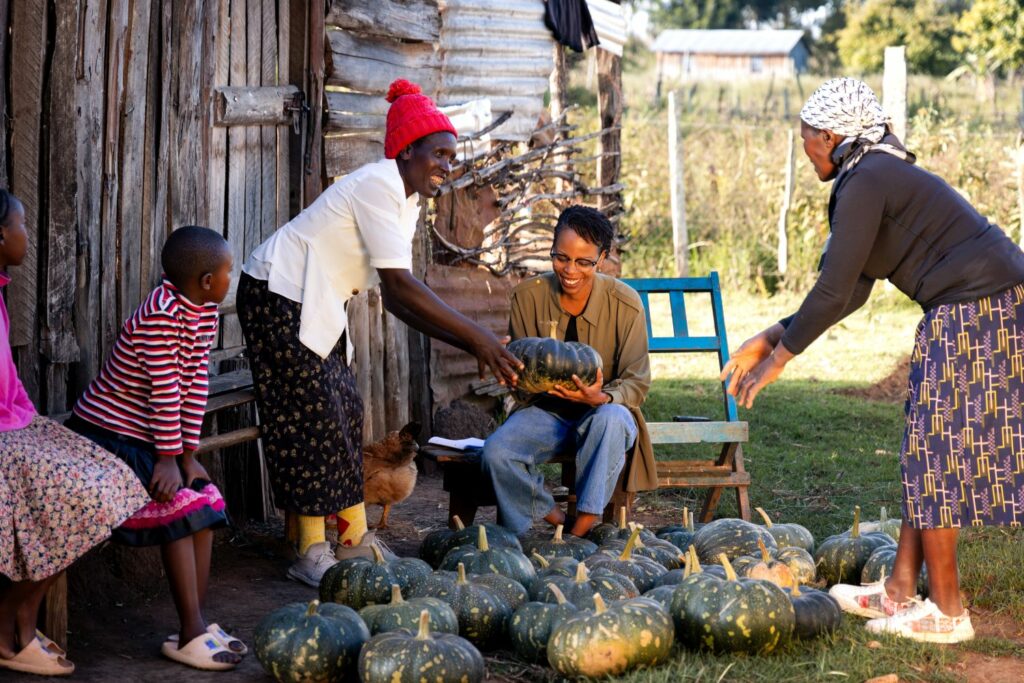
Key challenges faced by smallholder farmers
- Crop losses due to unfavourable weather conditions
- High post-harvest losses due to lack of cooling or drying
- Time-consuming manual tasks (e.g. milking)
- High costs of irrigation powered by fossil fuels
- Limited market access and storage
- Gender inequality and limited business opportunities
Approach
Focus on Solar Solutions
The project promoted solar technologies and services for irrigation, cooling, and drying in dairy and horticultural value chains. These solutions helped farmers increase productivity, improve nutrition, raise incomes, and strengthen climate resilience and food security.

Innovative Business Models
SEFFA identified and piloted scalable, innovative solar business cases for smallholder farmers and local agri-businesses. Check out the latest publication for insights into scalable solar business models:
Access to Technology and Know-how
Farmers, agri-businesses, and renewable energy enterprises gained access to solar energy solutions and the technical knowledge needed to use them effectively. Watch the video below to see how solar-powered irrigation creates new income opportunities in Uganda.
Innovation Fund
An Innovation Fund provided small grants of up to €22,500 on a competitive basis. These supported registered entities with promising business ideas that could demonstrate small-scale success stories.
Through one of these grants, the women-led enterprise Plumbee Wholefoods installed a 500kg solar dryer, trained 90 smallholder women farmers, and enabled them to supply over 3,000 kg of pumpkin, generating more than €2,100 in additional income.
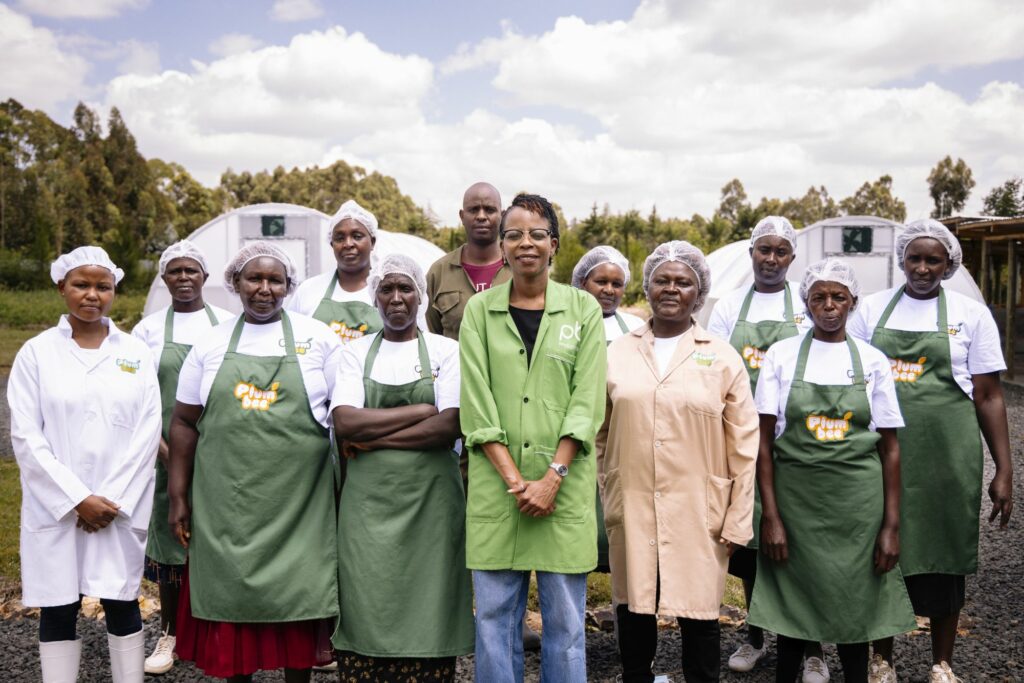
Cross-country Learning
EnDev facilitated knowledge transfer between Kenya, Uganda, and Ethiopia, ensuring systematic cross-country exchange and learning throughout the project.
What SEFFA achieved
Outcome 1: Increased access to PUE technologies for smallholder farmers through viable business cases
- 3 solar drying
- 4 solar cooling
- 6 solar powered irrigation
Outcome 2: Capacitated local actors in the operation of PUE technologies
- 5,375 Smallholder farmers
- Share of women 33%
Outcome 3: Businesses mainstreaming PUE technology & provide sustainable energy services to smallholder farmers and their livelihoods
- 15 Businesses supplying solar PUE technologies
- 6 Financial Institutions providing affordable credit lines
Strong alliance of partners
About IKEA Foundation
The IKEA Foundation is an independent philanthropy focused on creating brighter lives on a liveable planet through its grant giving efforts. It is funded by INGKA Foundation, owner of Ingka Group. Learn more at www.ikeafoundation.org.
The SEFFA project brings deep local knowledge and a strong track record in energy access. At the IKEA Foundation, we’re proud to support their work with smallholder farmers in East Africa. By backing early-stage innovations, we help test new business models that can shift entire systems. It’s about using our philanthropic capital to unlock practical solutions that improve lives and protect the planet.
Jolanda van Ginkel, Head of Portfolio – Renewable Energy (IKEA Foundation)
About EnDev
EnDev improves the lives of the most vulnerable by providing access to sustainable energy in 20 countries worldwide. Currently, EnDev is funded by Germany, the Netherlands, Norway, and Switzerland and coordinated jointly by GIZ and RVO.nl. The strategic partnership is working with experienced implementers with SNV being one of the most prominent partners.
